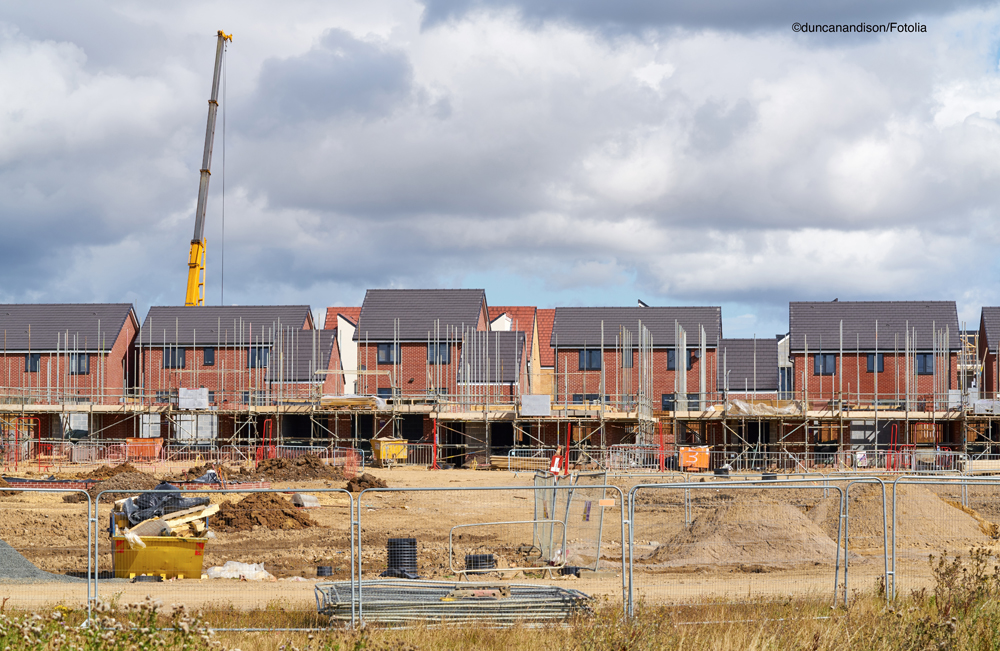
Chancellor Philip Hammond announced the Autumn budget today. There were a variety of implications for the sector. The main points include:
- £44bn has been pledged to housing over the next five years, with the aim of building 300,000 homes a year
- Stamp duty has been cut for first-time buyers on homes worth up to £300,000
- An extra £10bn has been pledged towards Help to Buy
- Councils will be able to charge a 100% premium council tax on empty properties
- Plans to end homelessness by 2027 are followed by £240m of infrastructure investment for London boroughs
- Government has promised to lift the Housing Revenue Account (HRA) debt cap
- £1.5bn will be spent on the universal credit system, with the repayment period for advances extended from six to 12 months
The Local Government Association released a statement following the budget, commenting that: “The LGA has long called for councils to be given greater freedom to borrow to build new homes and today’s Budget has taken a step towards that by lifting the housing borrowing cap for some councils. This is an important recognition of our argument about the vital role that councils must play to boost homes for local families in need and solve our housing crisis, but does not go far enough.
“The money local government has to run services is running out fast and councils face an overall £5.8bn funding gap in just two years.”
“Only with fairer funding and greater freedom from central government to take decisions over vital services in their area can local government generate economic growth, build homes, strengthen communities, and protect vulnerable people in all parts of the country.”
In response to the 2017 Autumn Budget, David Orr, Chief Executive at the National Housing Federation, commented: “We particularly welcome the changes to Universal Credit, including advance payments and the removal of the seven-day waiting time. These changes will make a direct and positive impact to the lives of housing association tenants.
“The big challenge for the nation remains the supply of new affordable housing. We share the Government’s ambition of reaching 300,000 new homes a year, every year for the foreseeable future.
“Whilst the Chancellor is right to say there is no silver bullet, a long-term supply of affordable land is the critical factor. We will need government to ensure that public land is used for housing and that private land is bought where it is needed to create new communities.”
The Chartered Institute of Housing’s Deputy Chief Executive Gavin Smart added that the Government’s renewed commitment to solving the housing crisis is positive, but warned of the importance of providing affordable homes.
Gavin said: “We particularly welcome the Government’s ambitious new target to deliver 300,000 new homes a year. Of course, the important thing is that we are building the right homes in the right places and that people can afford them. We have to make sure that any new funding supports the building of new homes that meet the varied needs of individuals and families across the UK. For many people, social rents, which are much cheaper than private rents, remain the only truly affordable option and more must be done to support this crucial form of housing.
“The important thing is that we are building the right homes in the right places and that people can afford them.”
“We have long argued that if we are going to build the homes we need, councils will have to play a major part and we welcome measures to support this. The Government has made a series of announcements in recent months which lay the foundation for housing associations to commit to developing many more new homes and we must do the same for councils. Relaxing borrowing caps for councils in high demand areas is very positive — we hope to see the Government build on this move so that we see a return to the levels of council housebuilding we need.”
Andrew Jepp, Managing Director at Zurich Municipal, added: “Central government must allow local authorities greater freedom to replenish social housing stock. We welcome the Chancellor’s announcement that he will lift Housing Revenue Account borrowing caps for councils in areas of high affordability pressure, so they can build more council homes. We will continue to monitor the impact of this change on our customers.”
The Federation of Master Builders also responded. Brian Berry, Chief Executive of the FMB, said: “Today the Chancellor has put small- and medium-sized builders at the heart of ambitious plans to tackle the growing housing crisis. The Chancellor appears to be putting his money where his mouth is with the announcement of £44bn of capital funding, loans and guarantees.
“In particular, a further £1.5bn for the Home Building Fund to be targeted specifically at SME housebuilders can play a significant role in channelling crucial funding to this sector. A £630m fund to prepare small sites for development and proposals to require councils to deliver more new housing supply from faster-to-build smaller sites will provide opportunities to boost small scale development.”
Finally, Nicholas Harris, Chief Executive at Stonewater, remarked: “With housebuilding currently running at around half the level needed to meet national demand, this is a great Budget for getting Britain building and one which promises to remove some of the major blockages which are stopping affordable homes from being built. We welcome the Government’s £1.1bn commitment to unlocking strategic sites for housebuilding, speeding up planning permissions, a focus on helping regional builders and investment in construction skills.”








